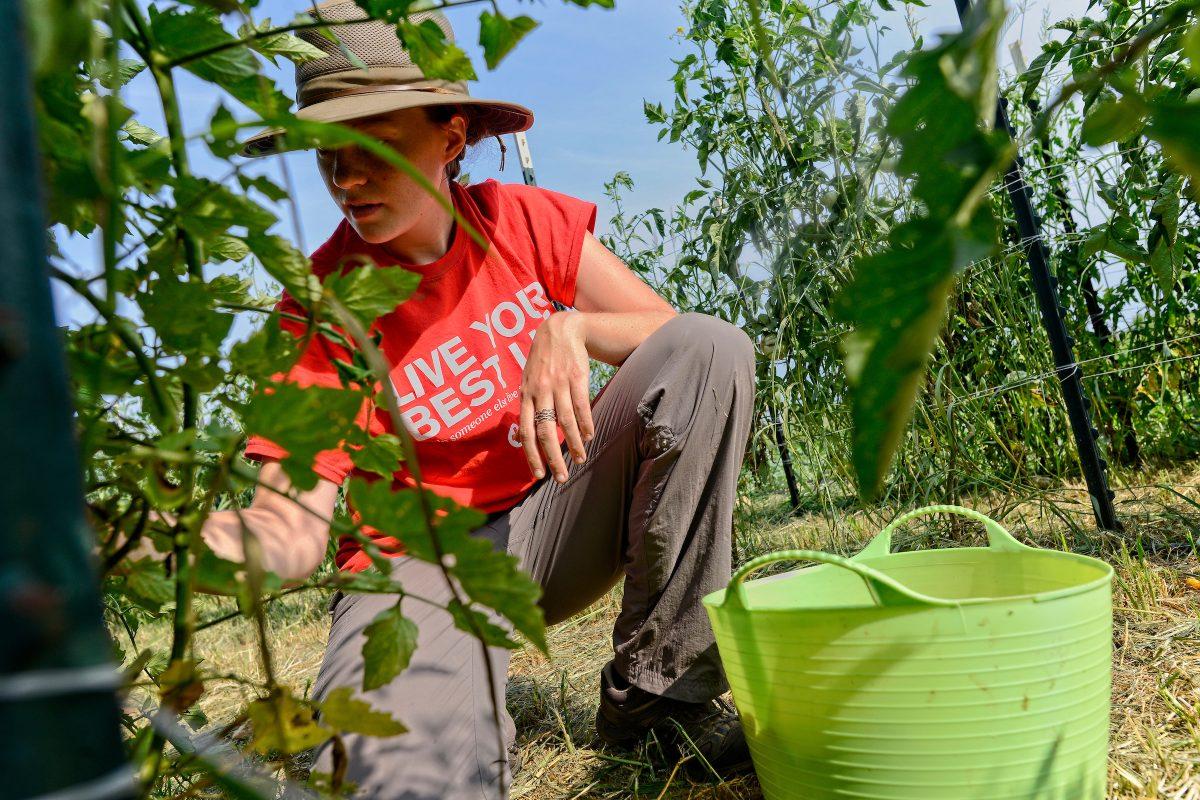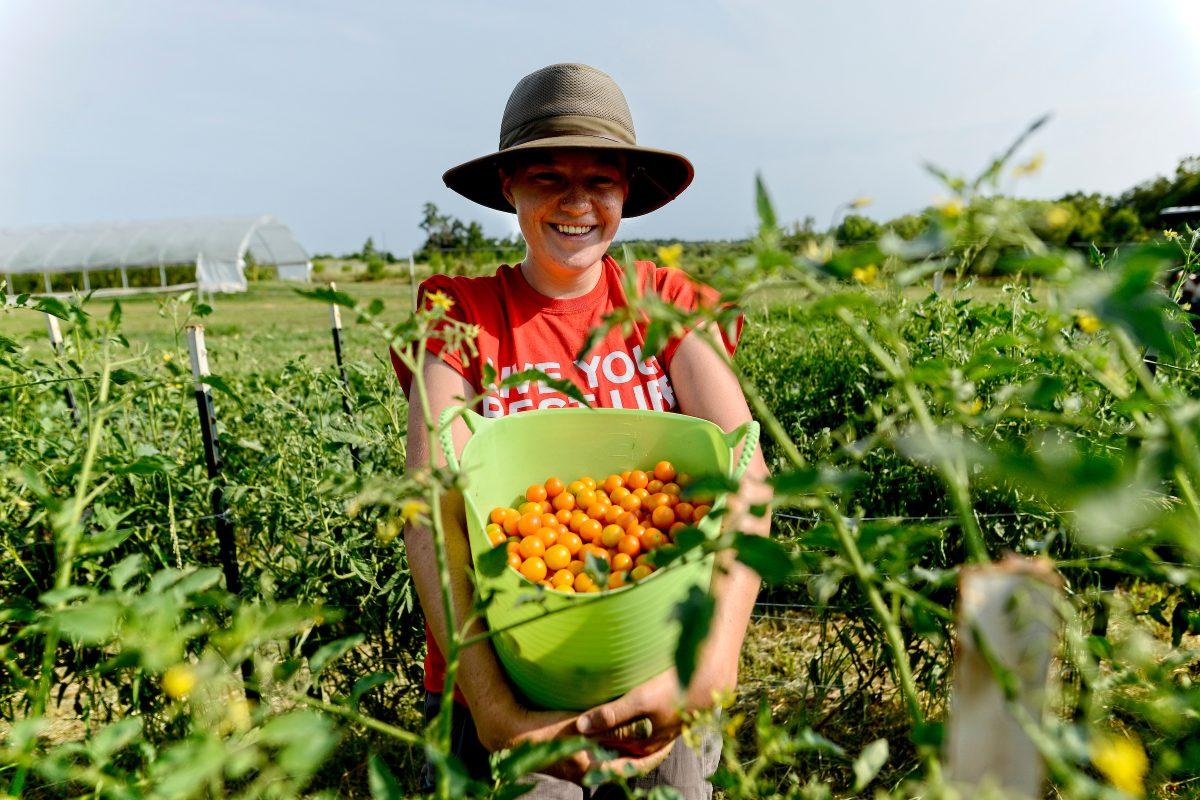Not far from main campus, the Agroecology Education Farm serves as a place for students to come together and learn about sustainability and agriculture through hands-on experiences.
Sara Snyder, farm manager of the Agroecology Education Farm, and Michelle Schroeder-Moreno, director of the Agroecology Education Farm, took Technician on a tour of the 6-acre community farm located near Lake Wheeler.
Both experts highlighted the crops grown for NC State Dining and agriculture projects built by previous volunteer students to promote sustainability.
Snyder said the most direct connection between the farm and the general student body is through its supply of products to dining halls.
“The way that we most directly impact all students is by bringing produce to dining,” Snyder said. “All of it goes to Fountain Dining, which is the largest dining hall on campus.”
Besides giving produce to NC State Dining, the farm also gives produce to Feed the Pack.
Snyder said that the farm provides students with hands-on learning opportunities by hosting classes, volunteer workshops and tours.
“We’ve had over 500 people to the farm since May/June,” Snyder said. “So that’s pretty common for us to have lots of students come out here.”
However, Snyder said the deepest impact the farm has is with student workers.
“They get lots of hands-on experience,” Snyder said. “Learning how to work on a farm, like all the whole suite of production and what that entails — so harvesting, washing, packing, delivering to dining, how those interactions go and also seeding, transplanting.”
The idea of building an Agroecology Education Farm originated from the need to create a space near campus for students to gain farm experience and hands-on agriculture skills.
“I was teaching agroecology courses, … and you know, we go to farms, … and wanted a place near campus because it’s not just about being near in a classroom and coming out here, but also a sense of creating community,” Schroeder-Moreno said.
Schroeder-Moreno said it took time and effort for the Agroecology Education Farm to get to where it is today.
“The first year was about getting electricity,” Schroeder-Moreno said. “There’s a pole; we have an underground line and [a] well for water and that one shed. And I said, ‘Well, we’ll do the rest.’ This is 15 years in the making.”
Today, the farm is not just for educational purposes, but also for wellness activities for students.
“Mental wellness is really critical; if we could be a space for that, that’s great,” Schroeder-Moreno said.
In the spring semester, the Agroecology Education Farm plans to continue hosting both volunteer workdays and wellness programs for students, such as workshops and open hours, in which students can unwind from the week and do homework in an open area near the crops.
For more information about the Agroecology Education Farm, visit its website.
Students work at the CALS Agroecology farm off Lake Wheeler Road. Photo by Marc Hall















